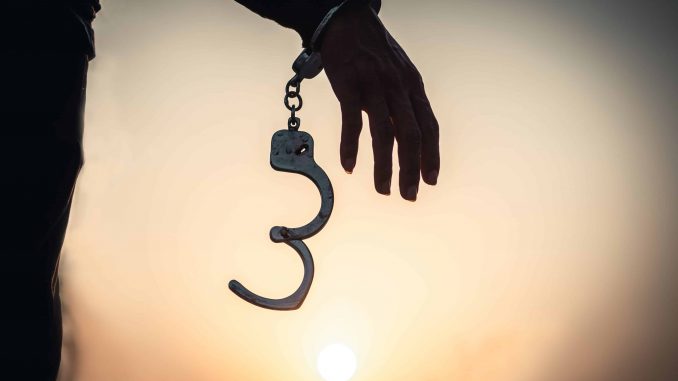
[ad_1]
President Joe Biden announced on Oct. 6 that he would be pardoning people across the country who currently have cannabis convictions on their record. According to the official White House press release, this means the pardon covers “…all current United States citizens and lawful permanent residents who committed the offense of simple possession of marijuana in violation of the Controlled Substances Act…”
The statement also made it clear that only “simple” convictions would be pardoned. “My intent by this proclamation is to pardon only the offense of simple possession of marijuana in violation of Federal law or in violation of D.C. Code 48–904.01(d)(1), and not any other offenses related to marijuana or other controlled substances,” Biden said.
Since the announcement was made, there has been no further announcements about the number of people who are to be pardoned, or their names. However, estimates provided by the U.S. Sentencing Commission provides insight into how many people could potentially receive a pardon.
Founded in 1984, the U.S. Sentencing Commission was created “to reduce sentencing disparities and promote transparency and proportionality in sentencing.” As an independent agency, its purpose is to collect and analyze data in regard to information related to federal sentences, and creates guidelines for crime policy in multiple branches of government.
In a report published on Oct. 13, the commission shows a chart featuring “The number of federal offenders convicted only of 21 U.S.C. § 844 Involving Marijuana” which covers the range of years between 1992-2021. An analysis of each year breaks down the number of U.S. citizen offenders, with a total of 6,577. The report notes that no offenders are in Federal Bureau of Prisons (BOP), as of Jan. 29, 2022.
In a total of all of these offenders who have at least one count of simple possession (as defined by 21 U.S.C. 844) 78.5% of offenders were male, and 21.6% were female. In regards to race, 41.3% were White, 31.8% “Hispanic,” 23.6% Black, and 3.3% Other.
Another chart shows that offenders with convictions “Involving Marijuana and Other Drugs” includes a total of 415 people within the same time frame, and an additional chart shows 555 offenders “Involving only marijuana who also have other convictions.”
A breakdown of each Court of Appeals Circuit and its respective jurisdiction shows that the highest percent of regional offenders came from “Virginia East” at 9.7% (covering courts in Maryland, North Carolina, Virginia, and West Virginia), “Texas West” at 8.8% (covering courts in Louisiana, Mississippi, and Texas), “Arizona” at 16.7% and “California South” at 15% (both of which are included in United States Court of Appeals for the Ninth Circuit, which includes courts in Alaska, Arizona, California, Hawaii, Idaho, Montana, Nevada, Oregon, and Washington State). All other district percentages range from 0.1% to 4.3%.
Many states have already created programs to assist residents in expunging, vacating, or sealing cannabis convictions. According to Reuters, these efforts have helped over 2 million people clear their records.
In June, the American Medical Association adopted a cannabis expungement resolution. Expungement clinics also recently were held in Buffalo, New York in August. The U.S. House Judiciary Committee advanced two pieces of legislation in September that would provide relief for individuals with cannabis convictions.
Biden’s initial pardon announcement urged state governors to issue pardons as well. Most recently though, Indiana Gov. Eric Holcomb stated that he would not be pardoning anyone for cannabis convictions, and instead recommended that people seeking expungement use state programs that are already in place.
[ad_2]
Source link

Soyez le premier à commenter